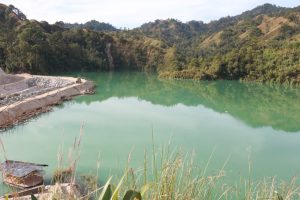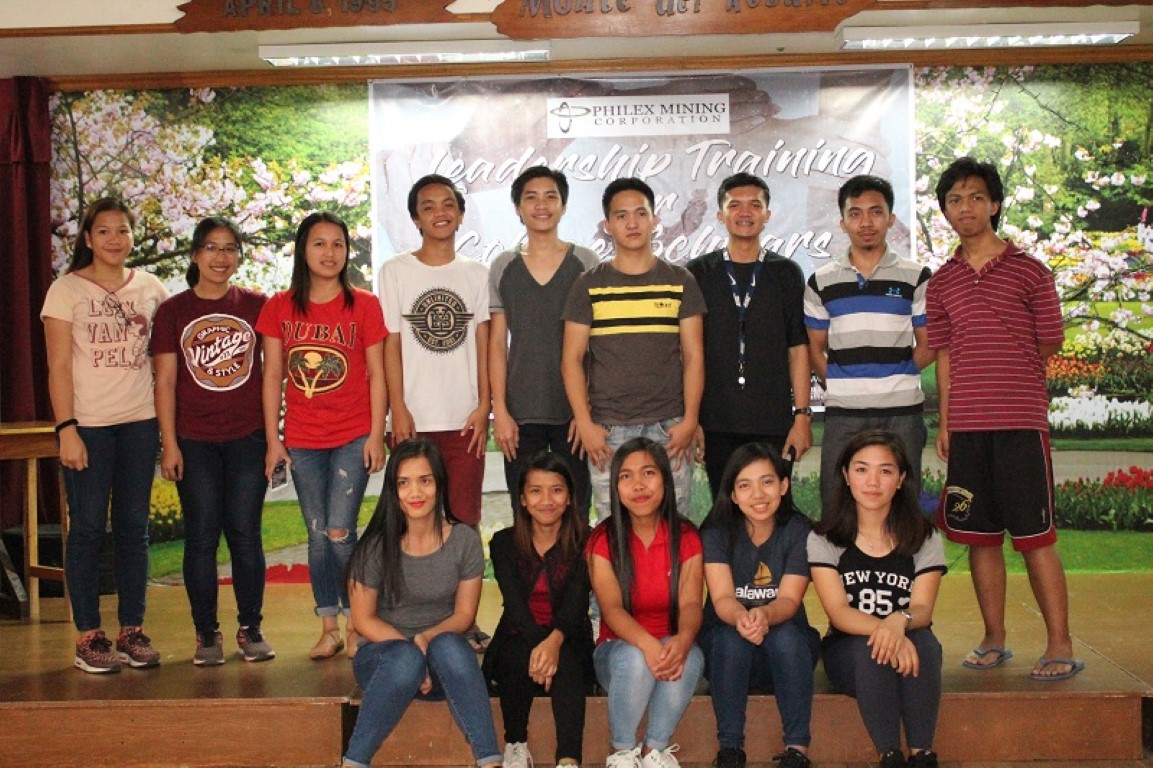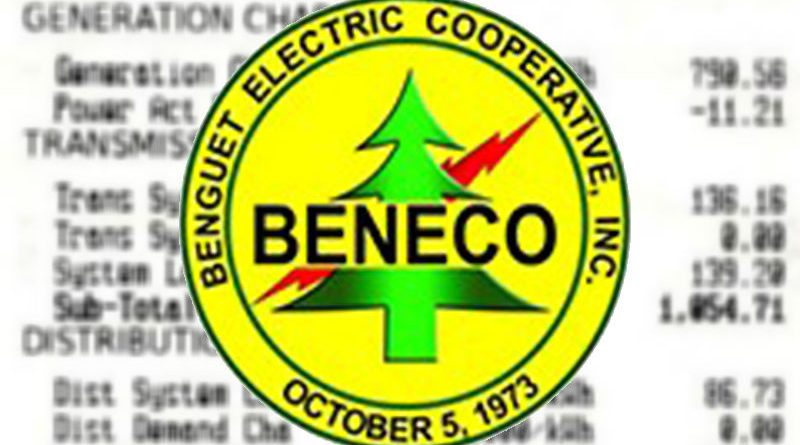(Last of a series)
(This story was funded under the Covering the Extractive Industries: Digging Out the Stories that Matter fellowship program of the Philippine Press Institute in partnership with the Philippine Extractive Industries and Transparency Initiative.)
TUBA, Benguet – Sandra Ramos, an Ibaloi who is a member of the Council of Elders of Ampucao, Itogon, explained that after the disastrous August 2012 tailings leak in Philex’s tailings storage facility (TSF) No. 3, even those who were vocal against mining in the host and neighboring communities joined forces in helping clean the Balog creek which was affected by the thousands of tons of tailings that leaked from the damaged facility.
Ramos pointed out the people in host and outlying communities will surely be affected by the projected 2022 mine closure as most residents rely on mining for their livelihood, as most of them are employees of the company, workers of contractors doing works within the mine site, business owners that cater to the needs of workers, among other related works.

“Employment and sources of livelihood will be greatly affected once the mines ceases operation in 2022. If it closes tomorrow, we are sure the people in the communities are not ready. If it will close in 2022, then what should be done by the company is to support and strengthen the established sources of livelihood like piggeries, goat raising, fish production, and others so that people will have sustainable sources of income once the mines will fold up,” Eduard Gonzales, a leader of the Banos Shayatao and Damon Acyapao clans, two of the biggest clans in Sal-angan, Ampucao, exclaimed.
The operation of Philex Mining Corporation was also the subject of a dispute between Itogon and Tuba, thus, local officials were forced to agree on a 50-50 sharing of the real property taxes being paid by the company starting three years ago. The two local governments agreed to divide the accumulated P200 million real taxes of the company and that the company will continue paying their equal share from the taxes until such time that the boundary dispute between the two towns shall have been settled with finality.

Tuba Mayor Ignacio Rivera admitted that if not for Philex, barangay Camp 3 and Tuba would not have become first-class barangay and first-class municipality, respectively, because of the multi-million taxes derived from its operation aside from the company’s other contributions in terms of the implementation of hard and soft projects that have benefitted them through the past six decades.
In preparation for the projected mine closure, Rivera explained that the local government is working on the expansion of the Baguio-based Philippine Economic Zone Authority (PEZA) in the municipality and PEZA officials already inspected the proposed potential sites for such planned expansion.
“Indigenous peoples will surely benefit from the expansion of the PEZA along Marcos highway because it will generate jobs for qualified residents aside from providing alternative sources of livelihood and other allied services,” Rivera stressed.
Dum-ao, Gabino, Bantasan and Dino are all in agreement with the plan of the municipal government to host the expansion of PEZA to provide people who will be displaced from the mine closure alternative sources of livelihood and they are of the view that the ‘consent of the IPs will be easily obtained unlike in environmentally critical projects like mining where people are wary of the destruction of their ancestral domain and the state of the environment in their place.’
In September 2010, Philex Mining Corporation established the Philex Group Foundation, Inc. (PGFI) to serve as its corporate social responsibility (CSR) unit recognizing mine life is finite and is concerned on its impact to the socio-economic development of its host and neighboring communities when the main ore body is depleted. The Foundation implements programs geared towards sustainable socio-economic development of its partner-communities. One of its flagship projects is coffee production where it now supplies Arabica coffee to various markets inside and outside the mine camp.

Gonzales said the establishment of the foundation is a good move for the company and the people need at this time technical assistance on strengthening already established livelihood programs so that once mining operations stop, ‘people who are left behind will be resilient and such livelihood projects be popularized to make them sustainable sources of income with neighboring communities as their clients.’
“The people in the host and neighboring communities are surely aware of the mine closure but there are individuals who still pin their hope in the possible extension of mine life that is why there is no noticeable proactive movement in the communities except that of the intention of Tuba to host the expansion of PEZA while Itogon continues to strengthen its ecotourism programs to serve as its alternative source of income in the future,” Gonzales cited.
Itogon Mayor Victorio Palangdan emphasized mining, large or small-scale, has been the town’s major economic driver for decades now and the projected end of mine life of Philex Mining Corporation will definitely have a significant impact on the town’s internally-generated income, considering the eventual loss of the P8 million annual business tax being directly paid by the company to the local coffers, apart from the town’s share from the national wealth tax and other benefits being derived by the communities.
Based on data obtained from the Itogon municipal government, Philex paid last year some P7 million in business taxes and over P5.2 million in real property taxes while based on the data from the Tuba municipal government, the mining company paid at least P7 million in business taxes and over P5.9 million in real property taxes.
In 2012, Tuba and Itogon officials entered into an agreement that pending the settlement of their boundary dispute covering the area of operation of the Philex Mining Corporation, the two local governments will equally divide the P200 million accumulated unpaid business tax of the company to the two local governments to be used for the implementation of their development projects. Under the agreement, Philex will initially pay to the two local governments P50 million each in 2013 followed by P25 million each again in 2014 and 2015 to complete the settlement of the said obligation, after which, Philex will start paying its business taxes to the two localities on an annual basis based on their existing ordinances until the dispute shall have been settled so that the local government that has jurisdiction over the company’s operations will be the one to get the said taxes.
“There is nothing wrong if Philex will extend its operations for several years because IPs have no doubt on the company’s commitment to fulfill its obligations to the host and outlying villages. It will be more difficult if it will be a new mining company that will operate a mine in our place as it still has to prove its integrity and credibility,” Ramos underscored.
He said local officials remain optimistic that mine life will be extended but stated that the local government needs to focus on other potential sources of income such as ecotourism, sports and recreation, agriculture and the investments considering the well-developed roads courtesy of the government and the private sector.
“Philex has been a responsible miner as it exploited some of the mineral resources within our ancestral domain. What is important now is for the company to restore our sources of potable water which we want to maximize to enhance the production of our agricultural crops and make our place a worthy place to live in, especially for the present and future generations,” she stated.
‘If there was life in mining, there will still be life after mining,” Bantasan said.
Jing Corpuz, legal counsel of the Tebtebba Foundation, a non-government organization advocating for the indigenous peoples rights locally and globally, remarked “it seems that the age-old values of these indigenous peoples have deteriorated based on what is happening. They need to undergo a reflection process for them to be aware of what had been lost. This way, they can bring back the values that their forefathers have passed on to them, especially the practice of existing traditional conflict resolution mechanisms, such as the ‘tongtong’ or discussing the problems among themselves and coming out with ‘win-win solutions. They can use these in their community development planning to avoid internal conflicts that weaken their solidarity and community spirit.’
Corpuz opined that IPs are liberal in their worldview nowadays due to various intervening factors such as inter-marriages, advances in information and communication technology, but these should not go to the extent of derailing their age-old proven consensual decision-making processes and conflict resolution mechanisms.
“If the situations is really beyond their control, we believe there should be a third party facilitator to manage the situation and put things in proper perspective so there is no clash regarding the prioritization of the benefits due them, especially in the identification of the projects for implementation,” Corpuz added.
Michael Umaming, chief of the NCIP-CAR’s technical services division, admitted that the people are not actually ready to absorb the enormous funds and projects being cascaded to them through the benefits due them pursuant to existing laws, rules and regulations because of the absence of sufficient social preparation.
He agreed with the observations that the time-honored indigenous systems of settling conflicts and the values of the people have actually deteriorated primarily because personal interest among the people in the community have prevailed upon the supposed greater benefits that will accrue to them once proper planning and consultations will be undertaken for the prioritization of the development projects that should be implemented within their places to help generate long-term jobs, sources of livelihood and increase economic activities that will sustain better quality of life for them being beneficiaries of the mining operation.
“We need full-time personnel to handle the enormous problems of our IPs and the communities affected by mining and other extractive industries because the work entails too much work on the ground for people to understand that the projects that should be implemented to the benefit of the community residents and not for individuals alone,” Umaming exclaimed.
The NCIP-CAR official pointed out that among the difficult work at hand for them in the communities is for the government to go back to the drawing board and initiate sincere community organizing among the people in the affected areas, aside from making them understand that the benefits due them are supposed to be for the people and not for certain landed or influential individuals or to those who claim to have been the first residents of the affected areas.
“We certainly believe that NCIP must assert its facilitating role to put things in order in the said communities. While it may be true there had been lapses on the part of agency officials in the past, NCIP must now play a proactive role in helping the indigenous peoples strengthen their indigenous political structures and processes and for the constituents to regain their community values and work for common interests for the future generations who deserve a better quality of life in their ancestral domain,” Corpuz stressed.
Umaming believes that resolving the conflicts of the people in the affected communities will take some time as there is a need to inculcate in the minds of beneficiaries that the benefits from mining they are currently enjoying is temporary and what matters most is the future of the communities after mine life, and there is the urgent need for more interventions not only from the government but also the non-government organizations advocating IP rights to make them realize this and face the reality that mining is not forever (‘walang forever’).
With six decades of dependency, will a 5-year phase-out period wean them away? Just like addicts, it will take an internal community determination to move towards a self-determined and self-reliant development that can sustain them after mine life. External actors like government, non-government organizations, and the company can only do so much. With the remaining years of mine life, people living in the host and outlying communities must shift their mindsets from ‘there is life in mining’ which has been the company’s slogan for years, to ‘there is better life after mining.’
By Dexter A. See













